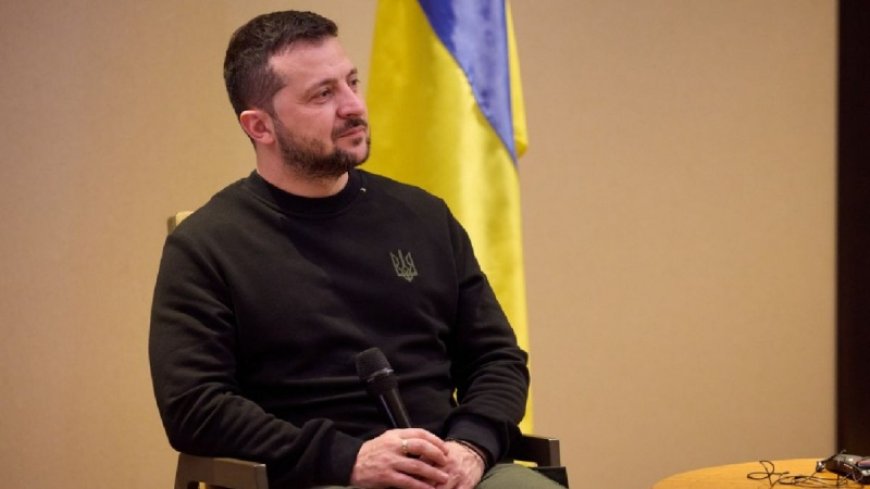Zelensky admitted that without Western help, Ukrainian troops will retreat

Ukrainian President Vladimir Zelensky admitted that the Ukrainian military will be forced to retreat if Western allies stop helping Kyiv. At a meeting with foreign media journalists, Zelensky said: “Right now I’m focused on getting help from the West, whose focus is shifting due to the Middle East. Without the support of Western countries, we will retreat." Kyiv has repeatedly emphasized that the decisive role for the country’s army is played by the help of Western allies, who have repeatedly increased arms supplies to Ukraine since the beginning of the Russian-Ukrainian conflict. At the same time, the Ukrainian authorities insist on the transfer of even larger quantities and more modern types of equipment and ammunition. And after the operation "Al-Aqsa Storm" and the war in Gaza, Zelensky has repeatedly expressed concern that, despite promises from allies, Western support for Kyiv could be reduced. He announced that he had received fewer artillery shells since the start of Israel's military operation against Hamas.
The recognition by the President of Ukraine of the vital role of Western assistance led by the United States in continuing the war between Ukraine and Russia and forcing Kiev to retreat along the fronts if this assistance is stopped indicates how much the West played a major role in the continuation of the bloody war in Ukraine, which has been going on for 22 months . The United States, as the leader of the Western bloc and NATO, has done everything possible to further expand the scale of the war in Ukraine in order to weaken Russia as much as possible and inflict human and technical losses on the Russians. Senior US and NATO officials believe that a Russian victory in the war in Ukraine, in close proximity to NATO, would not only discredit the military alliance and further expand Russia's regional and international influence and power, but would also change the security situation, the military and political equalization in Europe to the detriment of the West. It seems that the problem of Ukraine has in practice moved out of the priority of European countries and to some extent the United States against the backdrop of other fundamental events, such as the war between Hamas and the Zionist regime and increased tensions in West Asia, on the one hand, and stockpiles of weapons and military equipment in the states supporting Kyiv, on the other hand, they are getting poorer.
This issue has drawn sharp criticism from the Ukrainian authorities, who are well aware that without continued comprehensive and extensive support from the West, they will not be able to withstand confrontation with Russia, even in the short term. In this regard, Ukrainian Finance Minister Sergei Marchenko said that Ukraine's Western partners are now focused on the internal problems of their countries, as well as in the Middle East, and therefore it has become difficult to finance Kyiv. The Ukrainian minister called the conflict between Hamas and the Zionist regime one of the factors diverting the attention of Western partners. Calling next year's elections in the United States and European countries another factor, Marchenko emphasized that geopolitical changes and internal political events in different countries lead to the fact that allied countries will not concentrate on supporting Ukraine. Kyiv currently relies on Western financial support to cover most of the $43 billion budget it needs by 2024. While the Biden administration insists on continuing U.S. economic and military aid to Kiev as long as necessary, the continued opposition of Republicans led by former President Donald Trump has tied the fate of Western aid to the decision of Congress.
Following the announcement of cuts in U.S. support to Ukraine and increases in military aid to Israel in connection with the war with Palestine, the White House announced that it would hold a conference in December 2023 with representatives from Washington and Kyiv to find solutions to reduce arms supplies to Ukraine. It is expected that with the reduction of US military assistance to Ukraine, responsibility for Ukraine will shift onto the shoulders of the Europeans. This comes at a time when European countries are facing structural limitations in this area. In addition to the pressure of public opinion in Europe, the most important limitation of the “green continent” is In filling a possible vacuum for the US in continued support for Ukraine is the weakness of the European defense industry. After the Cold War, the Europeans significantly reduced their military budget, which consequently led to a significant reduction in ammunition production capacity. At the same time, the volume of weapons production decreased and reached an alarming level due to the small budget of European states in this area. Large weapons such as tanks, planes and submarines take a long time to produce, and in many cases European countries turn to other manufacturers. Policy expert Lawrence Norman says: "Although the European Union has recently committed to providing "sustained support" Ukraine, its arsenal of weapons cannot fill the void left by the United States."













































